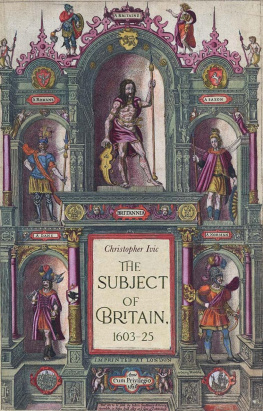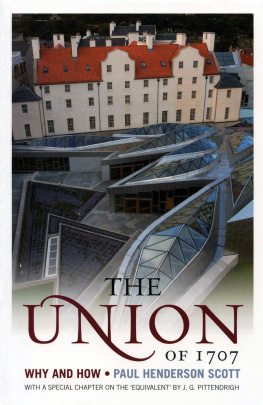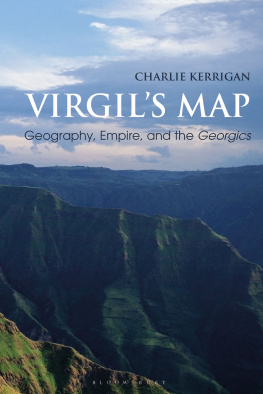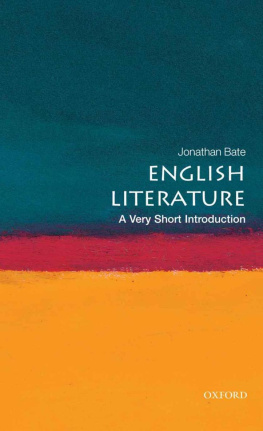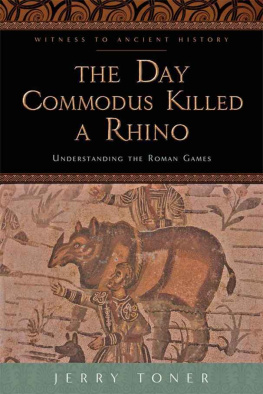Kerrigan - Archipelagic English: literature, history, and politics 1603-1707
Here you can read online Kerrigan - Archipelagic English: literature, history, and politics 1603-1707 full text of the book (entire story) in english for free. Download pdf and epub, get meaning, cover and reviews about this ebook. City: Englisch;Irland;Oxford;Schottland;Wales, year: 2010;2008, publisher: Oxford University Press, genre: Politics. Description of the work, (preface) as well as reviews are available. Best literature library LitArk.com created for fans of good reading and offers a wide selection of genres:
Romance novel
Science fiction
Adventure
Detective
Science
History
Home and family
Prose
Art
Politics
Computer
Non-fiction
Religion
Business
Children
Humor
Choose a favorite category and find really read worthwhile books. Enjoy immersion in the world of imagination, feel the emotions of the characters or learn something new for yourself, make an fascinating discovery.

Archipelagic English: literature, history, and politics 1603-1707: summary, description and annotation
We offer to read an annotation, description, summary or preface (depends on what the author of the book "Archipelagic English: literature, history, and politics 1603-1707" wrote himself). If you haven't found the necessary information about the book — write in the comments, we will try to find it.
Kerrigan: author's other books
Who wrote Archipelagic English: literature, history, and politics 1603-1707? Find out the surname, the name of the author of the book and a list of all author's works by series.
Archipelagic English: literature, history, and politics 1603-1707 — read online for free the complete book (whole text) full work
Below is the text of the book, divided by pages. System saving the place of the last page read, allows you to conveniently read the book "Archipelagic English: literature, history, and politics 1603-1707" online for free, without having to search again every time where you left off. Put a bookmark, and you can go to the page where you finished reading at any time.
Font size:
Interval:
Bookmark:
Seventeenth-century English Literature has long been thought about in narrowly English terms. In Archipelagic English leading literary critic John Kerrigan corrects this by devolving anglophone writing. He shows how much remarkable work was produced in Scotland, Wales, and Ireland, and how preoccupied such English authors as Shakespeare, Milton, and Marvell were with the often fraught interactions between ethnic, religious, and national groups around the British-Irish archipelago.
This book transforms our understanding of canonical texts from Macbeth to Defoes Colonel Jack, but it also shows the significance of a whole series of authors (from William Drummond in Scotland to the Earl of Orrery in County Cork) who were prominent during their lifetimes but who have since become neglected because they do not fit the Anglocentric paradigm. With its European and imperial dimensions, and its close attention to the cultural make-up of early modern Britain and Ireland, Archipelagic English authoritatively engages with, questions, and develops the claim now made by historians that the crises of the seventeenth century stem from the instabilities of a state-system which, between 1603 and 1707, was multiple, mixed, and inclined to let local quarrels spiral into all-consuming conflict.
This is a major, interdisciplinary contribution to literary and historical scholarship which is also set to influence present-day arguments about devolution, unionism, and nationalism in Britain and Ireland.
JOHN KERRIGAN


Great Clarendon Street, Oxford OX2 6DP
Oxford University Press is a department of the University of Oxford.
It furthers the Universitys objective of excellence in research, scholarship,
and education by publishing worldwide in
Oxford New York
Auckland Cape Town Dar es Salaam Hong Kong Karachi
Kuala Lumpur Madrid Melbourne Mexico City Nairobi
New Delhi Shanghai Taipei Toronto
With offices in
Argentina Austria Brazil Chile Czech Republic France Greece
Guatemala Hungary Italy Japan Poland Portugal Singapore
South Korea Switzerland Thailand Turkey Ukraine Vietnam
Oxford is a registered trade mark of Oxford University Press
in the UK and in certain other countries
Published in the United States
by Oxford University Press Inc., New York
John Kerrigan 2008
The moral rights of the author have been asserted
Database right Oxford University Press (maker)
First published 2008
First published in Paperback 2010
All rights reserved. No part of this publication may be reproduced,
stored in a retrieval system, or transmitted, in any form or by any means,
without the prior permission in writing of Oxford University Press,
or as expressly permitted by law, or under terms agreed with the appropriate
reprographics rights organization. Enquiries concerning reproduction
outside the scope of the above should be sent to the Rights Department,
Oxford University Press, at the address above
You must not circulate this book in any other binding or cover
and you must impose the same condition on any acquirer
British Library Cataloguing in Publication Data
Data available
Library of Congress Cataloging in Publication Data
Data available
Typeset by Laserwords Private Limited, Chennai, India
Digitally Printed and bound in Great Britain
by CPI Antony Rowe, Chippenham and Eastbourne
ISBN 9780198183846 (Hbk)
ISBN 9780199592555 (Pbk)
For Niamh
Historians increasingly recognize that early modern England, Scotland, Ireland, and Wales were in different degrees and for a variety of reasons, but sometimes to crucial effect, interactive entities. During the period 16031707, the islands of the North-West Atlantic constituted, culturally as well as politically, a linked and divided archipelago. This term, as used by the historians, and redeployed in my title, does three related things: it designates a geopolitical unit or zone, stretching from the Channel Islands to the Shetlands, from the Wash to Galway Bay, with ties to North America and down to the Caribbean; it does so neutrally (avoiding the assumptions loaded into the British Isles); and it implies a devolved, interconnected account of what went on around the islands. The contention of this book is that an archipelagic approach not just to seventeenth-century history but to the anglophone literature of the period can yield valuable insights.
Archipelagic English is more extensively historical than my earlier work. In this it follows a trend in literary studies, yet it owes more to mainstream historiography than to the theoretically and anthropologically driven methods of last centurys new historicism. It may be that the historicizing tendency in literary scholarship has started to become restrictive, but it has opened up issues that cannot be probed in other ways and equipped us more fully to make judgements about the value of texts. This is all that Archipelagic English seeks to achieve. It does not offer itself as the best way of thinking about seventeenth-century literature, nor as providing a full toolbox for reading, say, Cymbeline or Colonel Jackworks whose peculiarities require a mix of approaches. The aim is to add to our understanding of such works by recovering the circumstances of their composition and reception.
The book also contributes to the geopolitical turn in literary studies. If it does not talk much about cartographyprobably a relief, given how fashionable that topic has becomeit does, in some sense, remap the English- and Scots-speaking cultures of seventeenth-century Britain and Ireland. This shift to the geographical owes something to the general loss of belief that history has a providential or progressive direction. Archipelagic English does hazard a few generalizations about the overall course of events, and it unpicks some knots of connection and conflict, such as were generated by the long, involved relationship between English, Scottish, and Dutch Protestantism, which throw up repeated crises that had literary as well as military-political aspects. But the geocultural cast of this book has reinforced the impulseunderstandable in any case, given the relative novelty of my subjectto proceed in an essayistic manner. I have selected texts or clusters of texts, often related thematically, and sought to probe them in context, rather than attempt to construct overarching historical narratives, which are so often contradicted by local variation.
Historians frequently adopt a deep-litter approach to the page, piling up footnotes into running bibliographies. At times, especially when entering areas new to me, I have been grateful for this, but the effect can be cumbersome, and, in an age of electronic searches, it is less and less necessary. In the introduction, I do list further reading in notes as a way of condensing essential, preliminary information. Elsewhere, debts are signalled, but scholars not mentioned should not assume that their work has gone unread. For similar reasons, the bibliography lists only Primary Sources; secondary works should be readily locatable given the division of topics by chapter. To assist the reader, all the sources cited in a chapter are given in full detail on first mention. Because of the books historical tenor, it has seemed right to use old spelling. I have made a few silent corrections, and lightly regularized titles. Ligatures have been removed from ae and oe, and such forms as & and ye expanded where appropriate. When the background is Scottish, members of the royal family are likely to be called Stewarts not Stuarts. Whether a monarch is referred to as James VI or James VI and I, or Willem van Oranje or William of Orange or William II and III, depends on context, which is often debatable. Because location is a leading concern, place as well as date of publication is specified whenever possible for pre-1800 texts. The Bible is quoted from the Authorized Version.
Font size:
Interval:
Bookmark:
Similar books «Archipelagic English: literature, history, and politics 1603-1707»
Look at similar books to Archipelagic English: literature, history, and politics 1603-1707. We have selected literature similar in name and meaning in the hope of providing readers with more options to find new, interesting, not yet read works.
Discussion, reviews of the book Archipelagic English: literature, history, and politics 1603-1707 and just readers' own opinions. Leave your comments, write what you think about the work, its meaning or the main characters. Specify what exactly you liked and what you didn't like, and why you think so.



